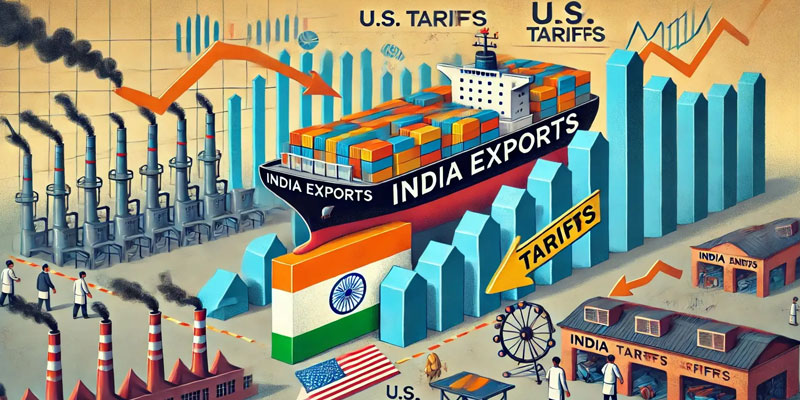Trump's Proposal and Its Immediate Shockwaves
Trump's decision to impose a 5% tax on international remittances sent by non-citizens is poised to deliver a substantial financial jolt to millions of Indian households. The move, introduced as part of the broader “One Big Beautiful Bill,” is aimed at funding a sweeping anti-immigration agenda while reshaping U.S. fiscal and border policies.
Passed narrowly by the U.S. House Budget Committee in a 17–16 vote, the bill proposes a blanket 5% tax on all remittances sent by non-citizens, including H-1B workers, Green Card holders, and other legal immigrants. Crucially, no minimum threshold has been defined, meaning even the smallest of transactions would be taxed.
India in the Crosshairs: A Remittance Powerhouse Under Strain
India, the world’s top recipient of remittances, stands to suffer significantly. In 2023–24, the country received approximately $120 billion in remittances, with 28% ($32 billion) coming from the United States alone. If passed, Trump’s tax could force Indian senders to pay $1.6 billion in additional costs annually.
According to a report by the Global Trade Research Initiative (GTRI), this new levy could lead to a 10–15% decline in remittance flows, translating to a potential shortfall of $12–18 billion for India. Such a decline would constrict India’s forex reserves, weaken the rupee, and disrupt household consumption patterns, particularly for families in rural and semi-urban areas who depend on these funds for essentials like healthcare, education, and housing.
Beyond India: A Global Ripple Effect
India is not alone. Countries like El Salvador, where remittances account for over 25% of GDP, and Mexico, with 4% of its GDP tied to migrant remittances, face similar concerns. For nations across Asia, Latin America, and Africa that rely heavily on remittance inflows, the tax could undercut economic stability and push many households into financial insecurity.
The absence of exemptions or progressive thresholds makes this tax especially regressive, disproportionately affecting middle- and low-income migrant workers who remit a significant portion of their earnings home.
What's Inside the ‘One Big Beautiful Bill’? A Broader Immigration Crackdown
The remittance tax is just one piece of Trump’s broader legislative agenda. The 1,116-page bill allocates $46.5 billion for border security, including restarting construction of the U.S.–Mexico border wall. It also earmarks funds to:
· Hire 3,000 new Border Patrol agents and 5,000 customs officers
· Expand detention facilities for up to 100,000 individuals
· Impose a $1,000 fee on asylum seekers, a move that breaks with long-standing humanitarian norms
Additionally, the bill aims to deport 1 million immigrants annually, making it one of the most aggressive anti-immigration proposals in modern U.S. legislative history. Critics argue this will erode America’s image as a land of opportunity and damage its soft power.
Exemptions, Verifications, and Unequal Impact
The only major relief in the proposal is that “verified U.S. citizens and nationals” will be exempt from the remittance tax. These individuals will be classified as “Qualified Remittance Transfer Providers” through a formal agreement with the U.S. Treasury. However, the process of verification remains unclear and is likely to add bureaucratic hurdles.
This selective exemption underscores the discriminatory nature of the policy—penalizing legal immigrants and long-term residents while shielding citizens.
Conclusion: A Tax That Transcends Borders
Trump’s remittance tax proposal is more than just a revenue-raising measure—it’s a political message cloaked in fiscal reform. For India, the stakes are particularly high, with potential ramifications for household economies, forex markets, and diplomatic relations.
While the bill still faces opposition within the U.S. Congress and among advocacy groups, its very advancement signals a shifting tone in America’s immigration and economic engagement strategy. Countries like India must now consider diplomatic avenues, bilateral discussions, and diaspora engagement strategies to mitigate the fallout.
In a globalized world, a policy crafted in Washington has the power to echo loudly across continents. The proposed remittance tax exemplifies just that.
(With agency inputs)





















